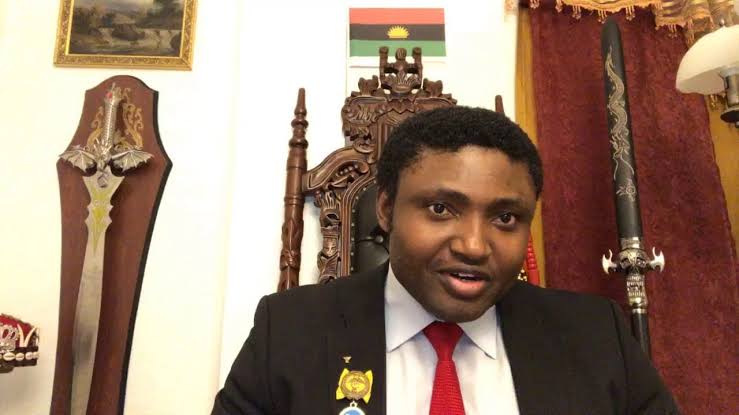President Bola Tinubu has yet to make an official statement regarding the arrest of Simon Ekpa, the self-acclaimed Biafra Prime Minister, in Finland.
Despite the buzz on social media, the presidency has maintained silence on the matter.
Cyber Reporters gathered that Ekpa’s arrest is linked to allegations of public incitement to commit a crime with terrorist intent in Nigeria, as well as spreading separatist propaganda through social media.
Reports say Finnish authorities have been investigating Ekpa since August 2021, and he has also been probed for alleged financial crimes, including dubious fundraising methods.
The Special Adviser to the President on Information and Strategy, Bayo Onanuga, believes that the National Security Adviser or the Attorney General of the Federation would be better suited to comment on the issue.
Meanwhile, the Special Adviser to the President on Policy Communication, Daniel Bwala, has stated that he is unsure of President Tinubu’s stance on the matter, as the President is currently out of the country and has not been fully briefed.
Bwala said: “You know that the role of a spokesman is to speak the mind of your principal, and you cannot preempt the principal until you hear so.
“For example, this event took place in Finland, so the natural thing is that probably the Embassy in Finland will brief the Foreign Affairs Office, then the Foreign Affairs Office will probably brief the National Security Adviser or the President directly, and then the President will take a position which will then give us the insight into his position on the matter, and we’ll be able to respond to the media.
At the moment, the President is out of the country and probably must be on his way, and then there is no official statement from the Foreign Affairs Ministry. So, it will amount to, I don’t want to say gaslighting. It will amount to irresponsibility for a spokesman to take a position that is not the position of his principal.
“So, maybe a little more time will help us to be able to get what the mind of the President is regarding the matter. Usually, in a situation like that, it is not even the President that immediately acts in a nation of rule of law. In a nation of rule of law, the chief law officer of the country is the attorney general.
So, probably the Attorney-General now will be coordinating with the Foreign Affairs Ministry if there is any government decision in respect of the matter. But I think that at this moment, in my view, I might be wrong, the procedure is that the embassy, which is our foreign office there, will brief probably the Foreign Affairs Minister.
“I think the Foreign Affairs Minister also must have travelled with the President, so it is too early to give a presidential opinion on the matter.”






